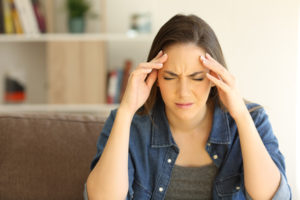 What is Vertigo and Dizziness?
What is Vertigo and Dizziness?
Vertigo, the feeling of being in motion when you are actually stationary, is considered a type of dizziness by the medical community. Other types of dizziness include disequilibrium (the sensation of being off balance), presyncope (lightheadedness), and non-specific dizziness (a general term for dizziness that is often brought about by factors causing hyperventilation).
Vertigo and dizziness are among the most common medical complaints, and tend to increase in frequency as you age. The most common form of vertigo is benign paroxysmal positional vertigo (BPPV), which is not serious.
Vertigo can also be caused by:
- head trauma
- an inner ear infection
- migraine headache
And (less commonly):
- Meniere's disease
- a brain tumor
- multiple sclerosis
- complications from diabetes
Other types of dizziness are often caused by:
- allergies
- cold or flu virus
- dehydration
- anxiety
- stress
- cigarette smoking
- alcohol
- the use of illicit drugs
- pregnancy
- depression
- (rarely) stroke
Your doctor will attempt to treat your vertigo or dizziness by first determining the underlying cause. If you have BPPV, a repositioning of the structures in your inner ear may be called for; a relatively simple procedure. Otherwise, you may be prescribed anticholinergenics (which inhibit parasympathetic nerve impulses) or antihistamines. Be sure to ask your doctor and/or pharmacist about potential side effects.
Natural medicine is quite effective in treating vertigo and dizziness. Vestibular physiotherapy has been shown to be very effective in treating symptoms, and acupuncture and TCM can help by re-balancing the flow of energy in your body. Finally, naturopathic doctor can ensure that you are eating the right foods to prevent dizziness, while a chiropractor may help realign nervous system functionality.
Contact us for a FREE consultation on how natural therapy can help you prevent and manage vertigo and dizziness.
These links may also be helpful:






 What is Vertigo and Dizziness?
What is Vertigo and Dizziness?
